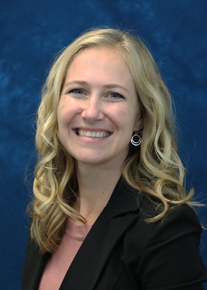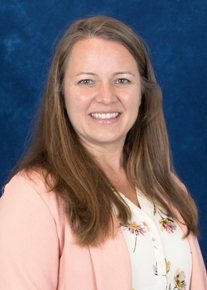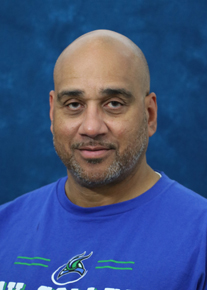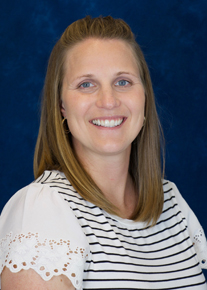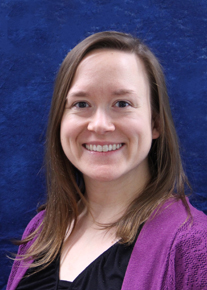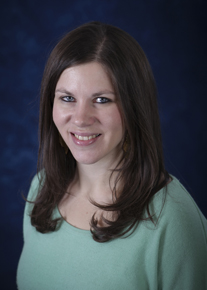Co-Advising
Our goal as your assigned co-advisor is to connect you to the people, ideas and services you need to succeed. Sometimes that means providing you with new tools and strategies to help you study smart and excel academically. We’re also happy to connect students to the network of college and community resources to help you balance life outside of class. Whether it’s tutoring for Math, putting food on the table between paychecks, finally conquering procrastination, or finding clothes for your first real job interview, we’re 100% committed to empowering you to succeed at Bay College and beyond.
Bay College Co-Advisors

Sam Frizzell
Adult Student Success Coach
(906) 217-4258
sam.frizzell@baycollege.edu
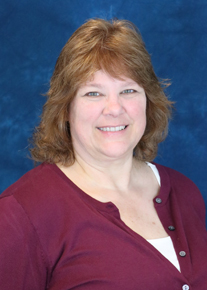
Jillena Rose
Director of Transfer and Advising
(906) 217-4047
jillena.rose@baycollege.edu
Book time to meet with me
Student Responsibilities and Checklist
- Select your courses
- Choose your schedule
- Send your transcripts
- Check on bills from college
- Buy your textbooks
- Meet with your instructors
- Seek help if you’re struggling
- Read the “Fine print”
- Keep track of important dates and deadline
- Let your instructor know if you’re sick, going to be absent, missed an assignment, don’t understand an assignment, think they’ve made a mistake, or have car trouble
- Read every class syllabus
- Log into your college email every day
- Be aware of where to turn in homework (online, in person, or email)
Essential College Vocabulary
- Syllabus - A multiple page document that your instructor gives you at the beginning of the semester; includes details about due dates, projects, and course requirements.
- College Catalog - A booklet that is updated every year to reflect program requirements, course sequences, and degree requirements.
- Add/Drop Date - The last day you can add or drop a course from your schedule.
Withdrawal Deadline: The last day you can withdraw from a course with a “W” on your transcript. - Registration - The process of picking your courses for the next semester and signing up for them.
- Academic Calendar - Calendar published by the college including important dates such as holidays, breaks, beginning and end of semesters, tuition deadlines, etc.
- Transcript - A record of all the classes you’ve taken. Can have multiple transcripts if you’ve attended multiple schools. If you transfer, you’ll send your transcript to the new university.
- Hybrid Course - A course that takes place partially online and partially on-campus.
- Blackboard - A portal where you engage with your online classes.
- myBay - Your info source for all things Bay, including registration, course search, accessing transcripts, etc.
- Academic Advisor - An instructor in your degree program who tells you what classes you need to take to complete your degree.
- Credits - What is a credit? Why does it matter? Determines the weight of a course. Typically, courses range between 3-4 credits. Full time = 12 credits or more. Important for financial aid!
- General Education Requirements - A set of courses that are completed within most, if not all, degree programs.
- Degree Requirements - A specific set of courses for your intended major.
Summer Session Tips
The Summer Sessions are Short, that means everything happens more quickly. Sometimes, because we work here, we forget to let our new students know what this means. Here are a few things to keep in mind:
- Be aware of the add/drop window. There are only a few days to drop a class.
- Participate right away so that you are not dropped for non-attendance.
- If your class is online and you are trying this for the first time, watch your MyBay email for an invitation from our Online learning office to take their orientation. You must complete the orientation before you can have access to your courses. Sometimes it can take up to 24 hours for you to get that access. Try to get the online learning orientation done early so you are ready to go on the first day.
- These classes are going to fly by. It’s always a good idea to go through the syllabus and write down exam and assignment due dates, but it’s even more important to get these down on a check off list where they are easy to see in the summer. And nothing feels better than checking them off!
- If you run into a roadblock during the class—like car trouble or losing WiFi or illness, please let your instructor know right away. They will do what they can to help, but they need you to communicate to tell them what’s up.
- There is free tutoring available for many classes. If you are tackling a subject that you know is always difficult for you (mine is math), Please think about getting this kind of help right away—it will help you stay on task.
- You may have a team of people who know you are going to school on top of all the other responsibilities you have. Make sure they know you will be working twice as hard for a few weeks, and don’t be afraid to ask them for help or support when you get into a time crunch. If you don’t’ have that team—now’s the time to get them on board to support you—friends, parents, children, co-workers and partners will feel like your success is theirs too once you’ve made it through your courses.
- And don’t’ forget us—your co-advisors and the staff at Bay College—Please feel free to reach out to chat or ask questions or just to vent, any time. We want to see you succeed and we know it’s hard work that makes that happen. We’re here if you need us!
Reverse Transfer
Reverse transfer is a process where credits earned at the four-year college or university after transferring from Bay College are transferred back to Bay College to determine if you are eligible for an associate degree. Transfer students may indicate their interest in reverse transfer by contacting registration@baycollege.edu, and by having an official transcript sent from their four-year college or university to Bay College. Bay College will evaluate the coursework to determine if Bay College degree requirements are met and if a degree will be awarded. Any Bay College degree or other credential will be awarded in the semester or year all final requirements are met.
